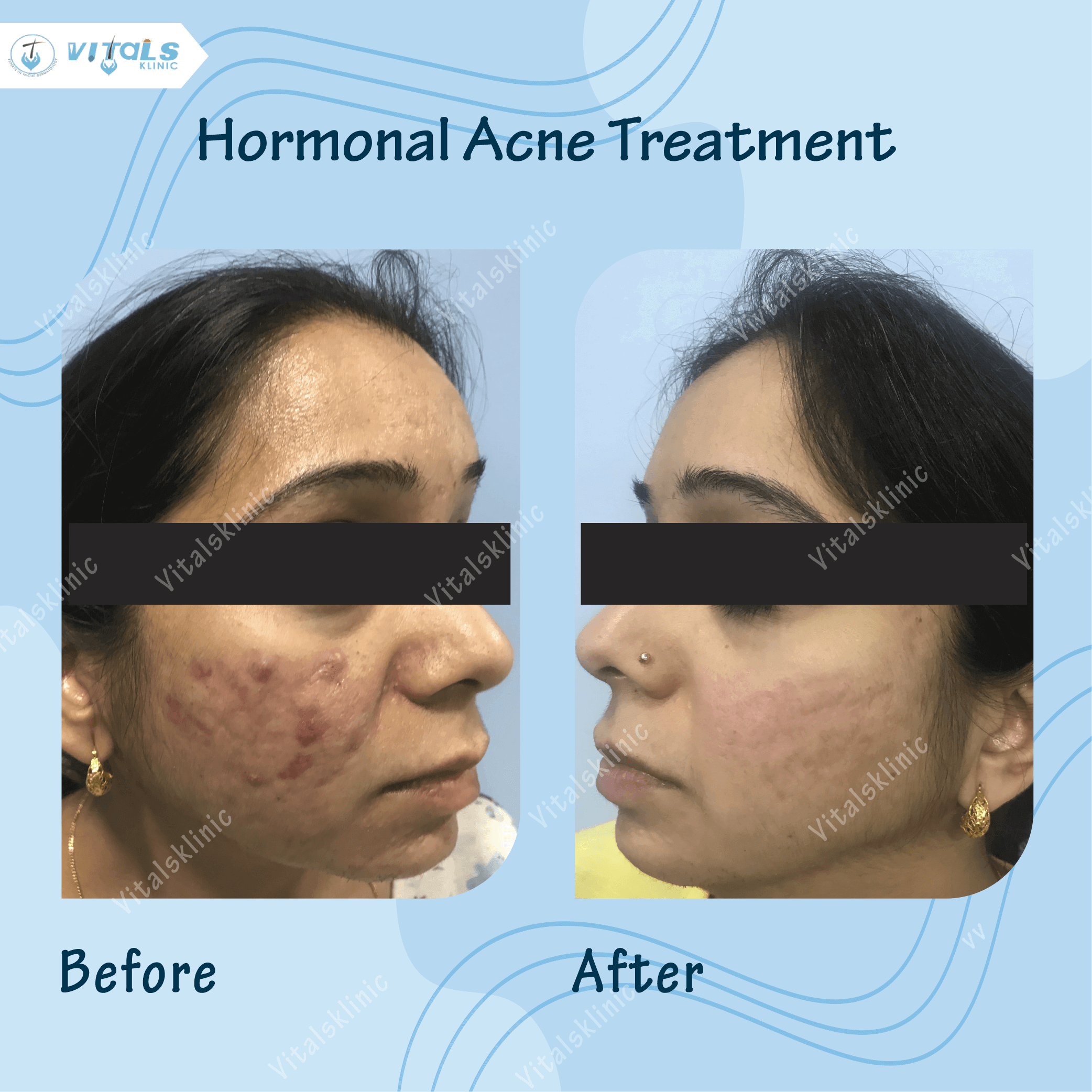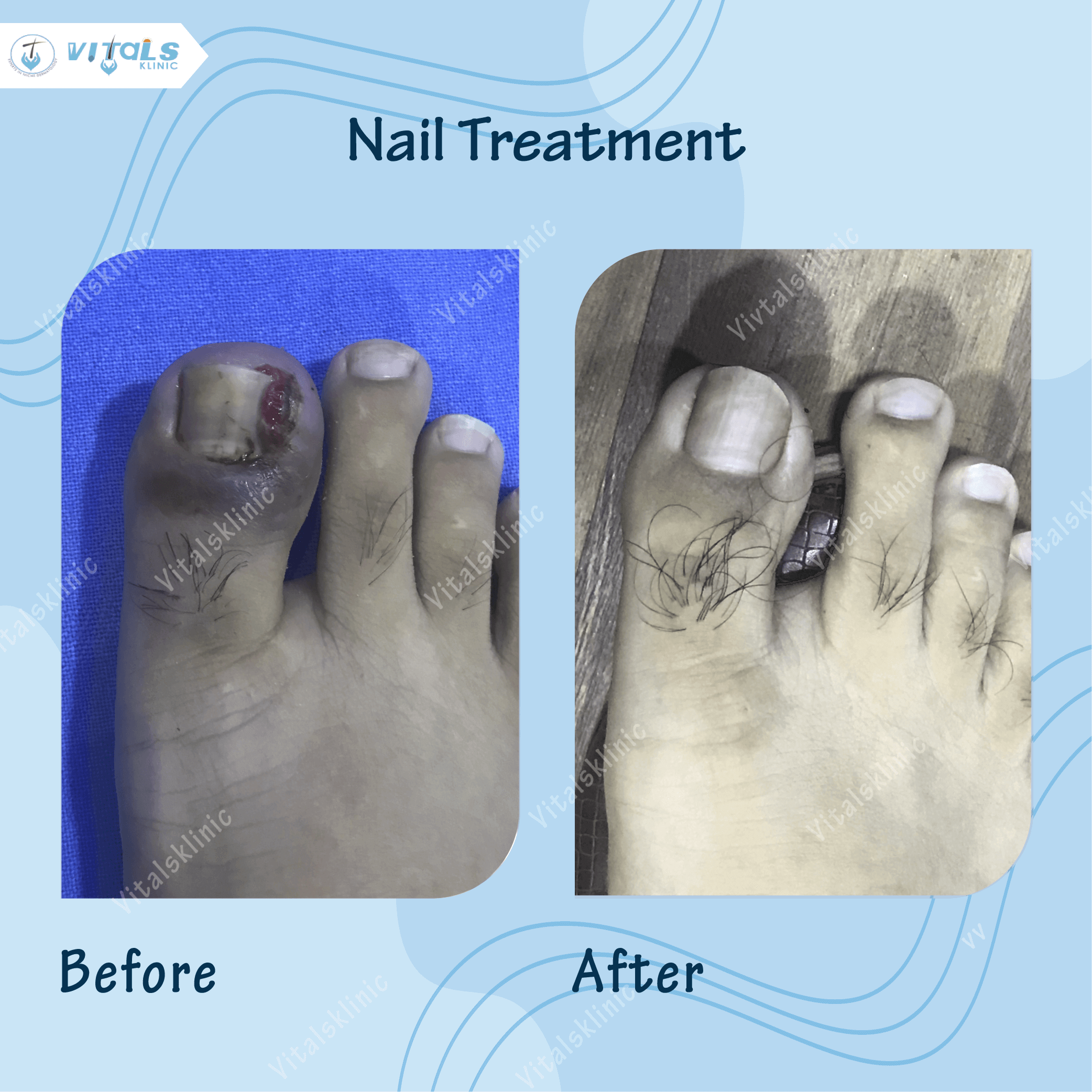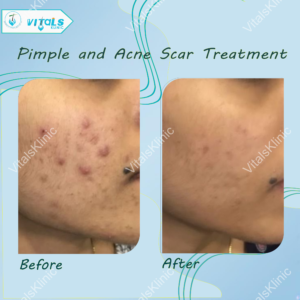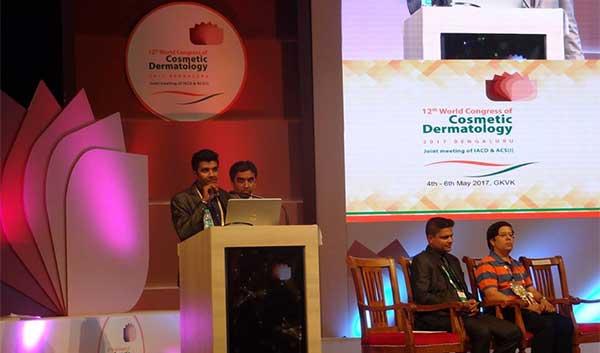By clicking "Book Your Slot" you agree to our Terms and Conditions and privacy policy
Book Your Slot
By clicking "Book Your Slot" you agree to our Terms and Conditions and privacy policy
Book Your SlotSKIN DISCOLORATION
What Is Pigmentation/Skin Discoloration
Skin discolorations come in various forms. It is normally generated from a pigment called melanin. When these cells get damaged or unhealthy, it affects melanin production, which affects patches of skin. Melanin gives your skin its characteristic natural colour, but when unevenly distributed, causes Pigmentation. VitalsKlinic provides the best pigmentation treatment in Bangalore through our well-qualified professionals and doctors.
What Are The Variety of Skin Discoloration (Pigmentation)

- Melanin — A pigment that creates hair, skin, and eye colour and protects the body by absorbing ultraviolet light.
- Melasma – A dark mask-like discoloration that covers the cheeks and bridge of the nose often called the mask of pregnancy.
- Vitiligo – A skin disorder that creates smooth, depigmented white spots on the skin.
- Eczema – commonly known as atopic dermatitis, causes red, itchy, and dry skin as a result of inflammation.
- Lentigines — Also called liver or age spots, are flat, benign lesions, usually between 5-20 mm in diameter.
- Albinism — People with albinism typically have light skin, white or pale yellow hair, and light blue or grey eyes.
- Hyperpigmentation — A skin condition that occurs when the body has an excess of melanin or pigment.
- Lichen Simplex Chronicus — A skin problem with a severe itch that causes thick, dark patches of skin to develop.
Causes of Skin Discoloration(Pigmentation)
Some common causes for changes in skin color are injury, illness, and inflammatory problems when the skin is continually scrubbed over and over and over-peeled and over-micro der abraded, the skin can be so inflamed–even if it’s not visible to the naked eye–and which results in pigmentation.
There Are Many Other Factors That Trigger Skin Pigmentation –
Hormonal Imbalances
Internal Hormonal changes in the body affect the skin’s pigment which often occurs as a result of aging, pregnancy, birth control, certain medications, or hormone replacement therapy.
Injury
Pigmentation will be triggered by our skin’s own self-healing mechanism, once associate inflammatory response happens once associated with injury. This can embrace skin problems, waxing, improperly performed optical device treatments or deep extractions, abrasions, insect bites, and razor bumps.
Treatments for Pigmentation(Skin Discolouration)
There are many natural and home remedies that can be used for preventing pigmentation on the face like Lemon, Olive Oil, Onion, Castor Oil, etc. Also, protective measures like effective Sunscreen Lotions against sunburn, cleansers, hydroquinone lotions, and brightening creams can be used prescribed by doctors. For long-term discoloration, other techniques such as lasers and other chemicals can be suggested by dermatologists. According to experts, laser peels are great since they have no heat, and can target dark spots without causing any inflammation.
Best Pigmentation Treatment In Bangalore
We have highly trained professionals, and experienced doctors to serve the best possible results for pigmentation treatment in Bangalore. We from VitalsKlinic provide all skin and hair related treatments like Acne, Warts Removal, Ingrown Toenail, Botox, Dermal Fillers, Earlobe Hole Repair, Spots, Melasma, PRP Hair Loss, Laser Hair Removal, Hair Transplant, Scalp Micropigmentation, Top Dermatologist, Vitiligo Treatment, Cellulite Treatment, Lipomas, Xanthomas, Spots, Scar Removal, Cyst or Swelling Excision, Chemical Peels, Cryotherapy, Keloids Treatment, Mesotherapy Treatment, and Dandruff Treatment.
Visit Our BTM Clinic Today
Name: Vitals Skin and Hair Clinic
Address: 8th Main Road, 390,
7th Cross Rd, BTM 2nd Stage,
Bengaluru, Karnataka 56
Contact number: 92068 69610
FAQS
General Questions
- What causes skin discoloration?
Skin discoloration can be caused by sun exposure, genetics, hormonal changes, aging, inflammation, and certain medications. - How can I prevent skin discoloration?
Prevent skin discoloration by wearing sunscreen, avoiding excessive sun exposure, and maintaining a healthy skincare routine. - What are the different types of skin pigmentation disorders?
Common types include hyperpigmentation, hypopigmentation, melasma, vitiligo, and erythema, each with unique characteristics. - Can skin discoloration be treated?
Yes, skin discoloration can often be treated with topical creams, chemical peels, lasers, and other cosmetic procedures. - Is skin discoloration contagious?
No, skin discoloration is not contagious and does not spread from person to person.
Types of Skin Pigmentation Disorders
- What is hyperpigmentation?
Hyperpigmentation is the darkening of skin due to excess melanin, commonly caused by sun exposure, inflammation, or hormonal changes. - What is hypopigmentation?
Hypopigmentation is the lightening of skin due to reduced melanin, often from injury, inflammation, or certain medical conditions. - What is melasma?
Melasma is a skin condition causing brown or gray patches, often triggered by hormonal changes, especially during pregnancy. - What is vitiligo?
Vitiligo is an autoimmune disorder where skin loses pigment in patches, resulting in white or light-colored areas. - What is erythema?
Erythema is skin redness caused by increased blood flow, commonly due to irritation, infection, or inflammatory conditions.
Causes and Risk Factors
- How does sun exposure affect skin pigmentation?
Sun exposure increases melanin production, often leading to dark spots, sunburn, and uneven pigmentation. - Can hormonal changes cause skin discoloration?
Yes, hormonal fluctuations can trigger conditions like melasma, causing dark patches on the skin. - Can inflammation lead to skin pigmentation disorders?
Inflammation can cause post-inflammatory hyperpigmentation, leaving darkened spots after acne, cuts, or rashes heal. - Can genetics play a role in skin discoloration?
Yes, genetics can influence susceptibility to pigmentation disorders like vitiligo or melasma. - Can certain medications cause skin discoloration?
Some medications, such as antibiotics and antimalarials, can cause skin discoloration as a side effect.
Symptoms and Diagnosis
- How do I identify skin discoloration?
Look for areas with uneven color, such as dark spots, white patches, or redness differing from surrounding skin. - What are the symptoms of skin pigmentation disorders?
Symptoms include dark spots, light patches, redness, or uneven skin tone, depending on the specific disorder. - How is skin discoloration diagnosed?
A dermatologist can diagnose it by examining the skin and reviewing medical history, sometimes with skin biopsy. - What tests are used to diagnose skin pigmentation disorders?
Skin biopsy, Wood’s lamp examination, and blood tests can help diagnose pigmentation disorders accurately. - Can skin discoloration be a sign of underlying health issues?
Yes, certain discolorations may indicate conditions like autoimmune disorders, liver issues, or hormonal imbalances.
Treatment Options
- What topical creams are effective for skin discoloration?
Topical creams with ingredients like hydroquinone, retinoids, or vitamin C can help lighten dark spots effectively. - Can chemical peels help with skin pigmentation?
Yes, chemical peels remove outer skin layers, reducing pigmentation and promoting an even skin tone. - Is microdermabrasion effective for skin discoloration?
Microdermabrasion can reduce mild pigmentation by exfoliating and rejuvenating the skin’s surface. - Can laser therapy treat skin pigmentation disorders?
Laser therapy can effectively target pigmented areas, lightening discoloration and improving skin tone. - Are skin brightening treatments effective?
Yes, brightening treatments with safe ingredients can improve skin tone and reduce discoloration for a more even appearance.
Our Services
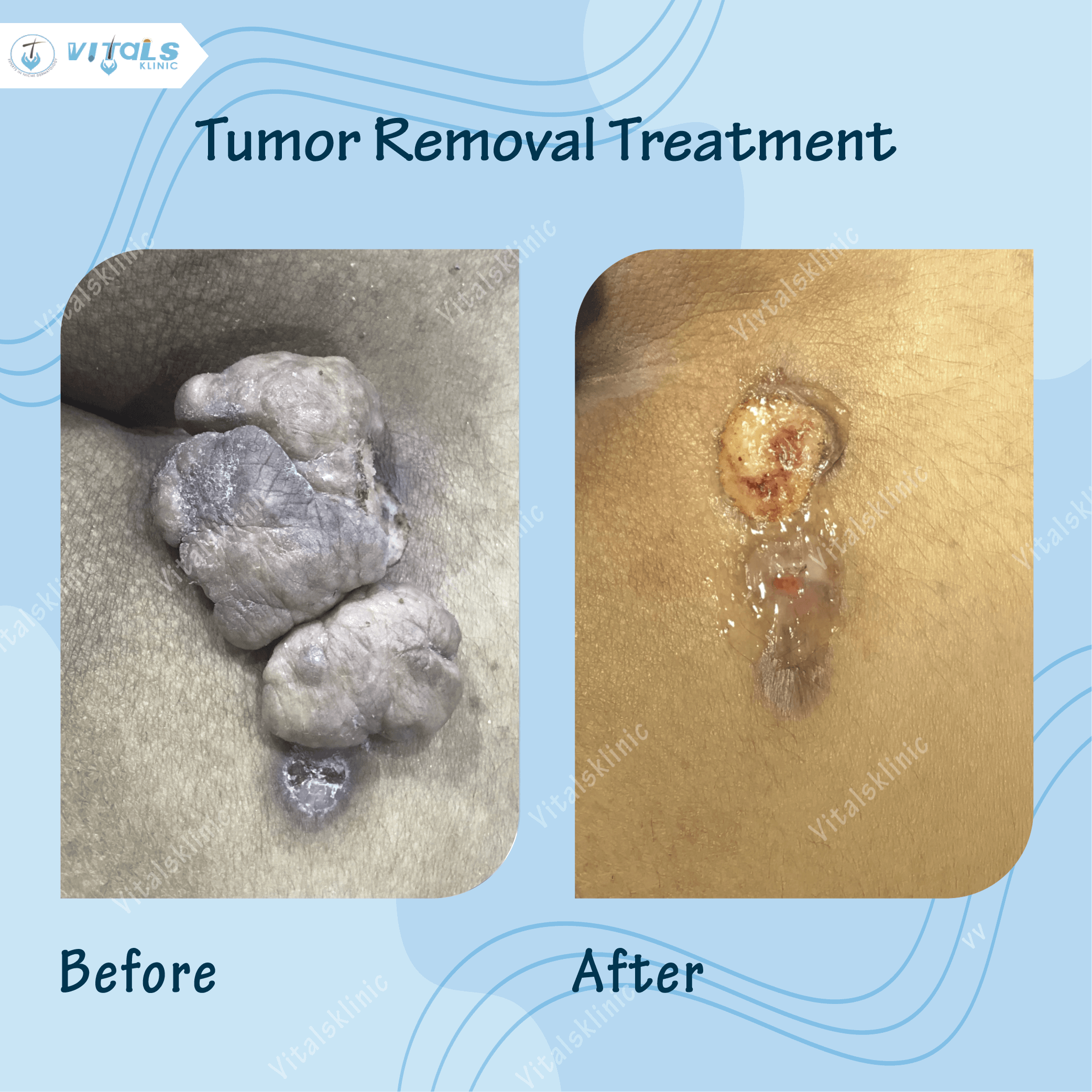
tumour removal treatment

